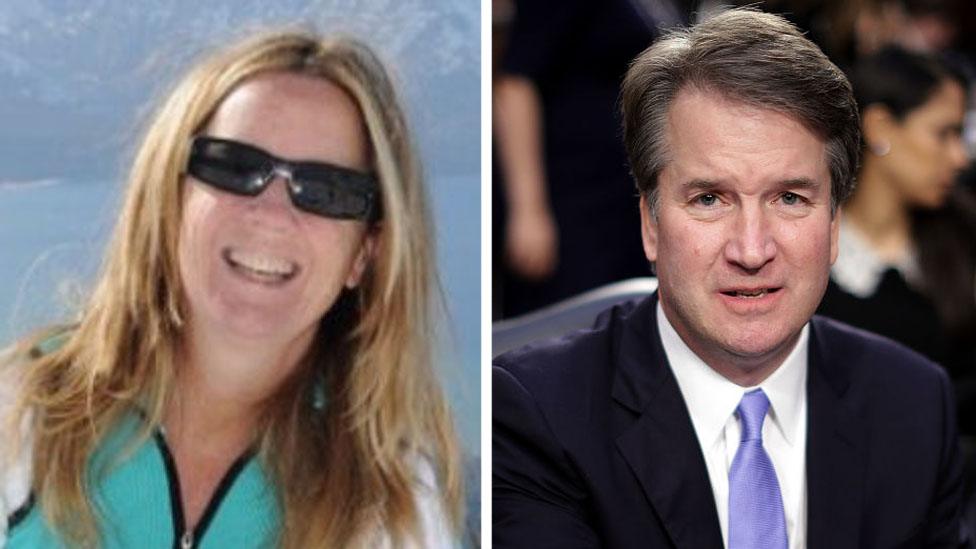Trump: FBI can question 'anybody' about Brett Kavanaugh
- Published
Trump: I'd be the world's worst drinker
President Trump has said he wants the FBI to conduct a "very comprehensive investigation" into sexual assault allegations against his Supreme Court nominee - but not a "witch hunt".
US media reports earlier suggested the White House wanted to restrict the inquiry into Judge Brett Kavanaugh.
Mr Trump said he had requested that the FBI be given free rein, but added: "I'd like it to go quickly."
The inquiry has delayed a Senate vote for the confirmation of Mr Kavanaugh.
His confirmation would tilt the top US court in favour of conservatives for years to come and represent a major victory for the Trump administration.
The issue has become central to the campaign for US mid-term elections. Conservative Republicans have accused the opposition Democrats of trying to delay the vote in the hope that they will win control of Congress after the November poll and therefore stop the nomination of Judge Kavanaugh.
When will Senate vote on Kavanaugh?
On Monday, Senate Majority Leader Mitch McConnell said the upper chamber would vote this week on whether to confirm Judge Kavanaugh to the Supreme Court.
"The goal posts keep shifting," he said as he accused Democrats of attempting to derail the nomination. "But the goal hasn't moved an inch.
"The time for endless delay and obstruction has come to a close."
Mr McConnell did not specify when exactly the vote would be held, but it is expected to be Friday - the deadline for the FBI to finish its inquiry - or the following day.

How teens are talking about sex in the #MeToo age
How US teens talk about sexual assault

Who is the FBI speaking to?
The FBI is expected to interview Judge Kavanaugh and some of the women who have accused him of sexual misconduct - including Prof Ford, who testified last week to the Senate Judiciary Committee.
Judge Kavanaugh's friend Mark Judge has already been interviewed.
Mr Judge's testimony is considered key to the investigation, as Professor Christine Blasey Ford says he was in the room when Brett Kavanaugh allegedly assaulted her at a house in 1982.
Mr Judge has not appeared before the Senate Judiciary Committee, but said in a statement: "I do not recall the party described in Dr Ford's letter."
Quoting an unnamed senior US official, NBC reported that the FBI's witness list does not include Julie Swetnick, the third accuser to come forward with a claim against Judge Kavanaugh.
US reports also say, external former classmates of the judge who have claimed he drank heavily in college are not on the witness list.
However, the New York Times earlier reported that a contemporary who accused the judge of lying under oath about his relationship with alcohol plans to speak to the FBI on Monday.
"I like beer": Kavanaugh defends his high school drinking during testimony
Because the agency isn't running a criminal investigation, but performing a background check at the request of the White House, it is the White House that defines the inquiry's parameters.
The president told reporters on Monday: "The FBI should interview anybody that they want within reason, but you have to say within reason."
He went on: "They should also be guided, and I'm being guided, by what the senators are looking for."
What are the drinking allegations?
Professor Charles Ludington, who teaches at North Carolina State University, said he had seen Judge Kavanaugh slurring his words and staggering after excessive alcohol consumption while at Yale.
Outside his home on Monday, Prof Ludington told reporters "unequivocally" that Judge Kavanaugh "has not told the truth" in denying the possibility that he blacked out from drinking.
He added: "I never saw him passed out but I saw him quite drunk."
The White House rebutted these claims with statements from two former Yale classmates of Judge Kavanaugh.
Chris Dudley and Dan Murphy said they had never seen the nominee black out while drunk at Yale, or behave inappropriately with women.
The New York Times also reported on Monday that Judge Kavanaugh and his friend Chris Dudley had been questioned, external, but not charged, over an altercation that involved a third man in a bar in 1985.
According to a copy of the police report obtained by the paper, Mr Kavanaugh was accused of throwing ice at the man, and Mr Dudley is alleged to have thrown a beer glass at him, cutting his ear.
At the time, Mr Dudley denied the accusation, while Mr Kavanaugh did not want "to say if he threw the ice or not," the police report said.
How have Democrats reacted?
On Monday nine of the 10 Democrat Senators on the Senate Judiciary Committee wrote to FBI Director Christopher Wray with a list of 24 people they believe should be interviewed. They called on the FBI to interview all three of the judge's accusers.
Democrats have requested copies of all the FBI's witness interviews, and the names of any who decline to co-operate.
Judge Kavanaugh denies the claims of his accusers:
Psychology lecturer Prof Ford, the first woman to come forward, says he tried to remove her clothing, pinned her to a bed and covered her mouth at a house party in 1982, when she was 15 and he was 17
Deborah Ramirez, a student at Yale at the same time as him, says he exposed himself to her during a college drinking game
Julie Swetnick says she went to house parties attended by him in the early 1980s, where she said he and his friends had tried to "spike" girls' drinks
What's likely to happen at the vote?
The Republican party's narrow 51-49 majority means if all Democratic senators vote against the nominee, Republicans can only afford one defection.
In that instance, Vice-President Mike Pence has the casting vote, and would go in Judge Kavanaugh's favour.
The FBI investigation was launched at the urging of Republican Senators Jeff Flake, Susan Collins and Lisa Murkowski.
- Published1 October 2018
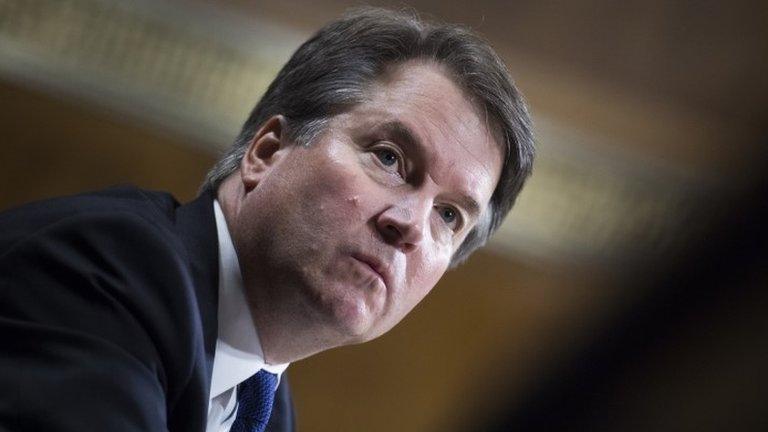
- Published4 October 2018
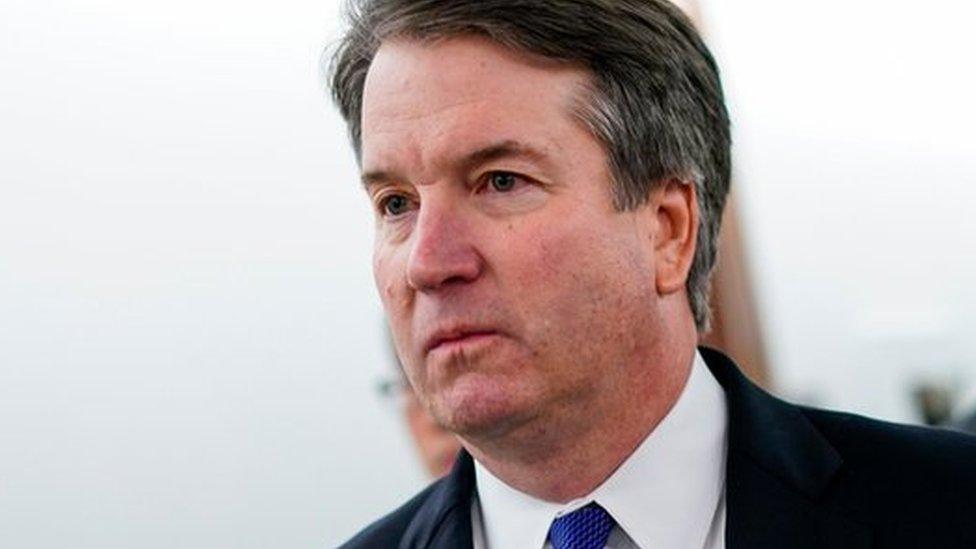
- Published5 October 2018
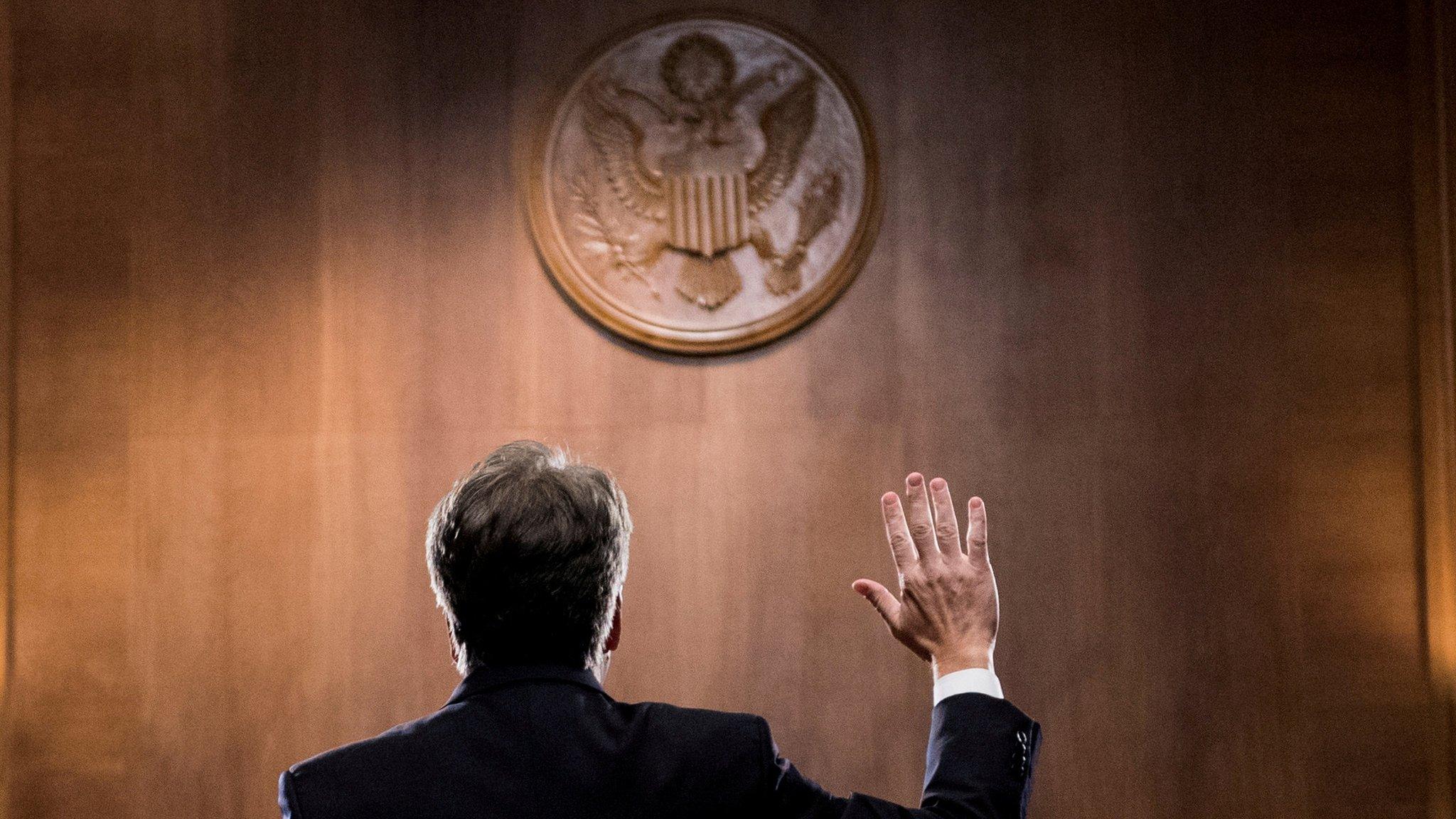
- Published28 September 2018
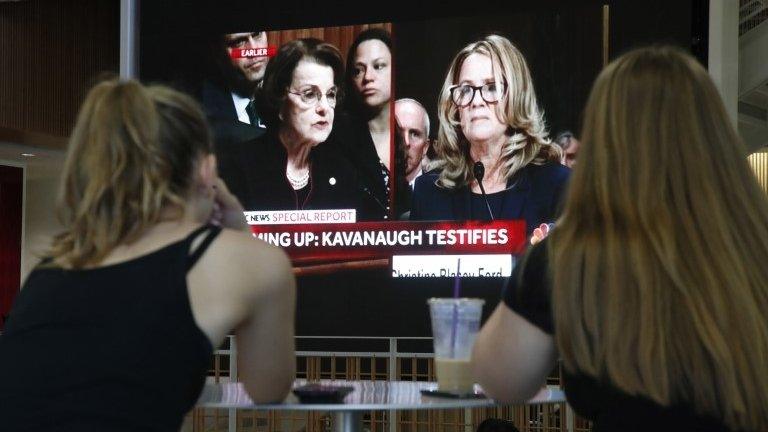
- Published27 September 2018
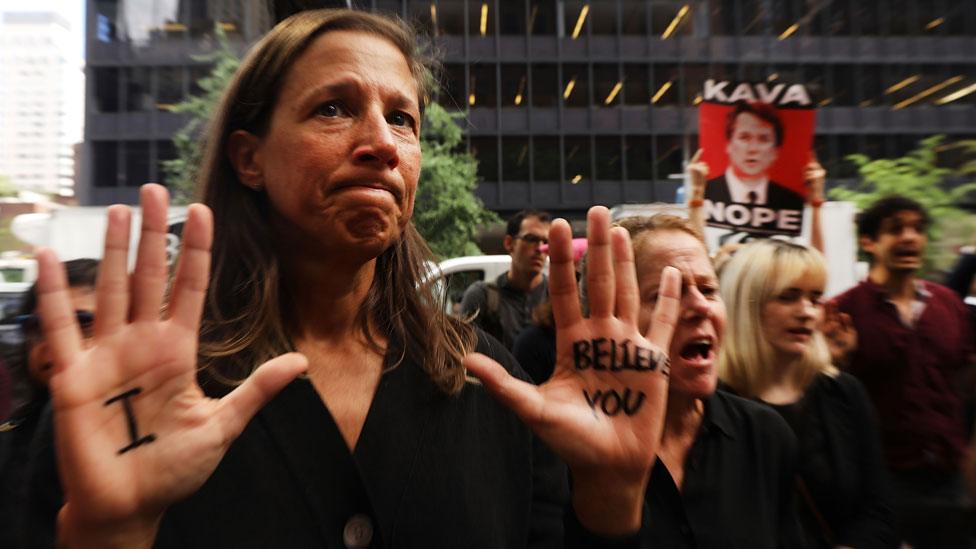
- Published27 September 2018
- Published26 September 2018
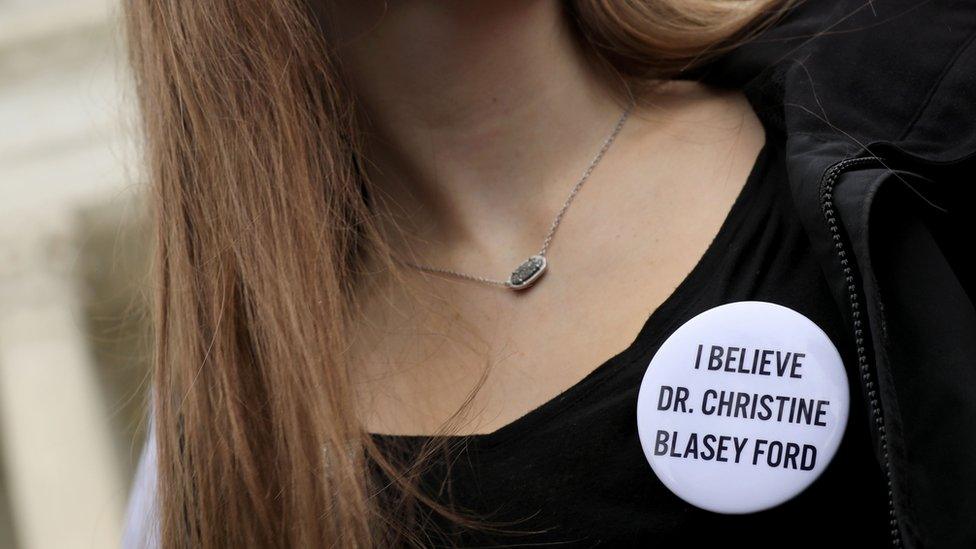
- Published23 September 2018
